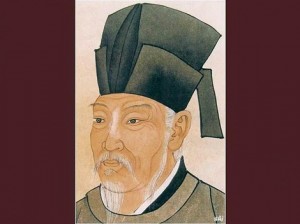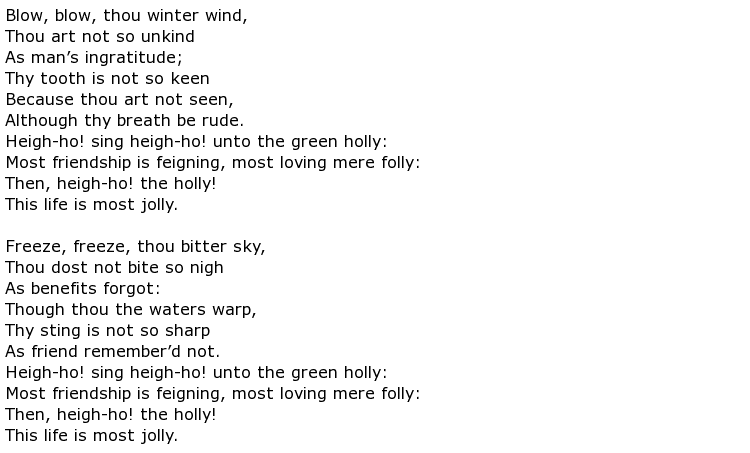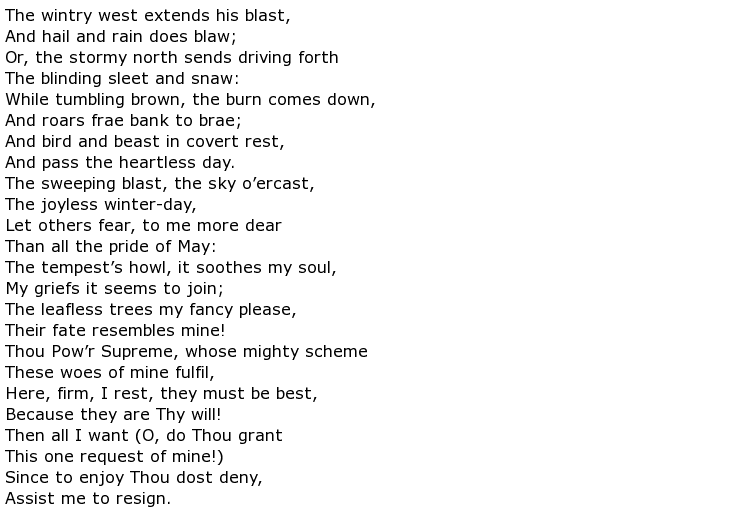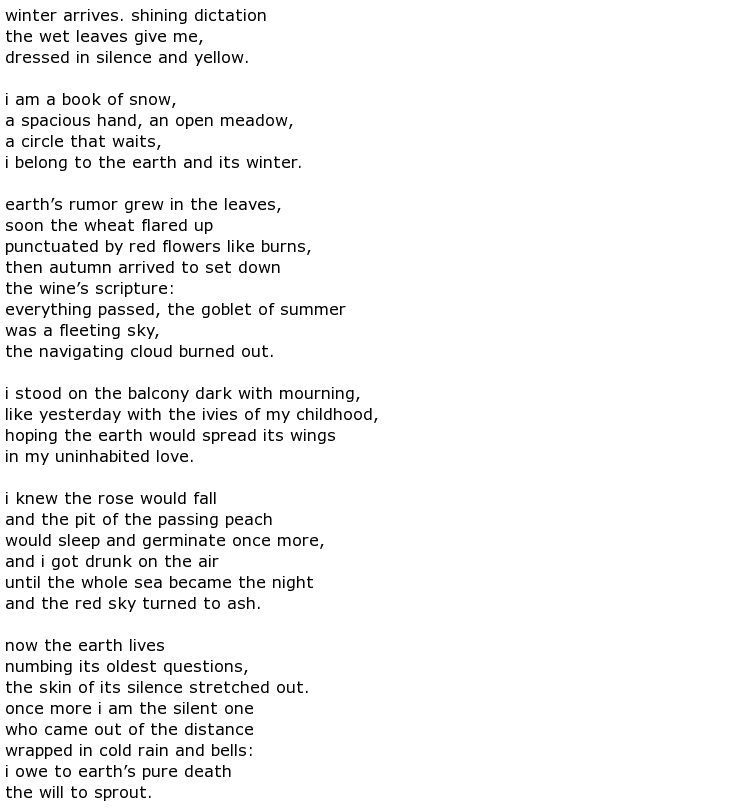
Bai Juyi – Chinese Poet
Each of the four seasons has found itself the topic of many essays, songs and poems. I remember as a young college student in the mid-1970s, hearing the lyrics of John Denver’s Season Suite caused me to be more aware of the impact of each seasonal change. Being a biology major during the ‘back-to-nature’ era, and myself having participated in the first ‘earth day’ events, those particular songs and lyrics seemed to resonate closely with my concerns for dear planet Earth. But the messages of such performers pale in comparison to those penned by some of the most talented poets of the times.
What first comes to mind is the incomparable William Shakespeare and his famous Blow, Blow, Thou Winter Wind, from As You Like It. Sung by the character of Amiens in the classic Shakespearean drama, the song compares the harshness of the winter weather with that of the ungrateful and malicious manners of friends, family and human-kind in general. In particular, Shakespeare comments on how the winter wind is not hardly as harsh and rude as “man’s ingratitude”. He likewise refers to the freezing temperatures of the winter sky, claiming that It’s “sting” isn’t as cutting as the forgetfulness of friends.
Blow,Blow, Thou Winter Wind
by William Shakespeare

Also from the British Isles comes the infamous Robert Burns. Often referred to as The Ploughman Poet or The Bard, Burns is considered as one of the pioneering masters of the Romantic movement. Regarding the winter months, Burns assembled the lines for Winter: A Dirge. This was an effort by Burns to lament the unpleasantness of the winter weather, as noted by “the joyless winter day”. But Burns himself comments in a note accompanying the poem, that he actually took great pleasure in the winter season, speaking of the winds “howling among the trees” and referencing the Biblical verse where God is said to walk “on the wings of the wind”.
Winter: A Dirge
by Robert Burns

As much as I enjoy the wonderful skills of the European writers, I think we should also take a few moments to consider some of the poets from other cultures. For instance, there is the Chinese poet, Bai Juyi, who was quite influential during the time of the Tang Dynasty. Although much of his work involved his duties as a government official, Bai Juyi occasionally offered a glimpse into the day to day life of 9th century China. His work was extremely influential in the later historical development of the literature of Japan. In the following poem, Bai Juyi uses just four simple lines to paint a wonderful picture of snowy, winter night.
Winter Night
by Bai Juyi

And then from Chile comes Pablo Neruda. Born at the beginning of the 20th Century, Neruda (born as Ricardo Eliecer Neftali Reyes Basoalto), first came onto the poetry scene when he published his first book, Crepusculario (Twilight). As with Bai Juyi, he held a position in government, working as a diplomat to Burma and later to Argentina. Throughout his life, he battled both words and politics. A view into the life of this revered Latin-American poet is seen in this translation of his poem, Winter Garden.
Winter Garden
by Pablo Neruda

For most of us, winter is coming quickly to a close. I hope that this short review of some winter verse will help us contemplate the end of one season and the new beginnings of the next.


You must register to comment. Log in or Register.